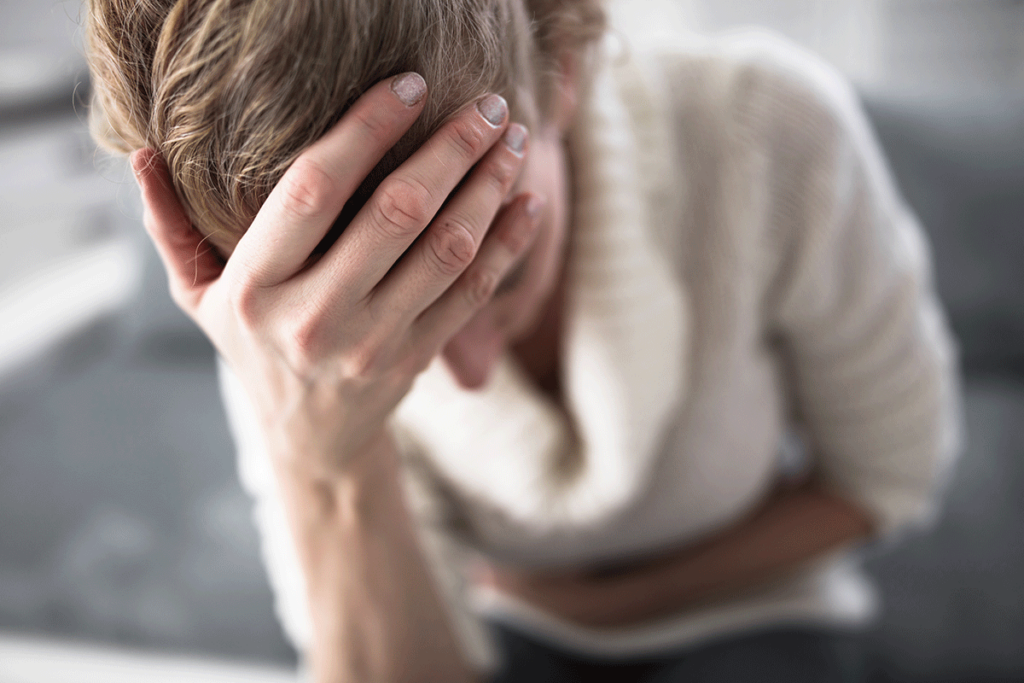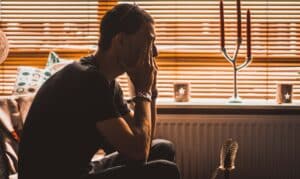Additional mental health conditions often accompany severe alcohol use disorders. Sometimes, that mental health condition is anorexia or another eating disorder. If you are affected by both alcoholism and an eating disorder, you not only need alcohol detox and rehab to recover. You also need help with your eating disorder-related symptoms. Why do drinking problems and disordered eating overlap in the same person? Research shows that there are multiple potential answers to this critical question. Call 888.231.1281 or contact our knowledgeable team online to learn more about the connection between alcohol and eating disorders and how our alcohol treatment at Northpoint Colorado can help.
Eating Disorder Basics
Eating disorders get their name because they produce severe, adverse changes in your relationship to food and eating. The four primary forms of these illnesses are:
- Anorexia nervosa
- Bulimia nervosa
- Binge eating disorder
- Avoidant restrictive food intake disorder (ARFID)
Each disorder produces its characteristic effects. For example, people with anorexia avoid eating or heavily limit their food intake. The underlying motivation for these behaviors is an extreme fear of weight gain and sometimes a distorted body image. People with bulimia go through cycles of binge eating and food purging. In binge eating disorder, people experience food-binging episodes but don’t engage in purging. Like anorexia, ARFID triggers limited and selective eating. However, affected people don’t fear gaining weight. They also don’t have distorted body images.
Eating Disorders and Alcohol Addiction: Common Overlaps
The strength of the connection between alcohol and eating disorders is not the same for everyone. The type of eating disorder affecting you can significantly impact your risk for alcohol problems. People with anorexia have the lowest overall level of exposure. However, chances are relatively high for people with bulimia. The same holds for people with binge eating disorders.
What explains these differences? One major factor is the typical level of alcohol use. People with anorexia are simply less likely to drink. In contrast, people with bulimia and binge eating disorder are more likely to drink.
Drunkorexia
Alcohol is well-known for its ability to promote weight gain. Some drinkers try to avoid such a possibility by purposefully limiting the amount of food they eat. This practice is sometimes known as alcohol anorexia or drunkorexia. Symptoms of this condition include the following:
- Drinking instead of eating
- Combining alcohol with small food amounts or water to keep calorie intake low
- Consuming large amounts of food but purging afterward
Drunkorexia is not an official medical term. It is also not a diagnosable eating disorder. However, studies show that, in severe cases, it can potentially contribute to the onset of anorexia. Women take part in drunkorexia more often than men. In addition, drunkorexic women are more often motivated by a desire to avoid gaining weight.
Alcohol and Loss of Appetite
In small amounts, alcohol can stimulate your appetite. However, if you drink heavily, the reverse can happen. In other words, alcohol can act as an appetite suppressant. What explains this connection between alcohol and loss of appetite? When consumed in large amounts, alcohol can:
- Change the way your body responds to hunger signals
- Make you feel physically full
- Shift your priorities away from food and toward drinking
These issues can lead to significant harm. That’s true whether or not you have an eating disorder. For example, they can increase your risk for serious nutrient deficiencies. They can also contribute to multiple forms of organ damage.
Learn More About Alcoholism and Eating Disorders at Northpoint Colorado
Want more information on the connection between alcohol and eating disorders? Talk to the professionals at Northpoint Colorado. We specialize in the treatment of alcohol problems. We also specialize in the treatment of any co-occurring mental health issues. That includes all types of eating disorders. With our help, you can regain your sobriety. You can also recover from the effects of disordered eating. To get started, call 888.231.1281 or contact our team online.




